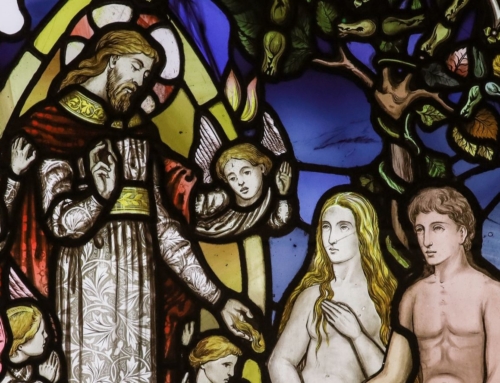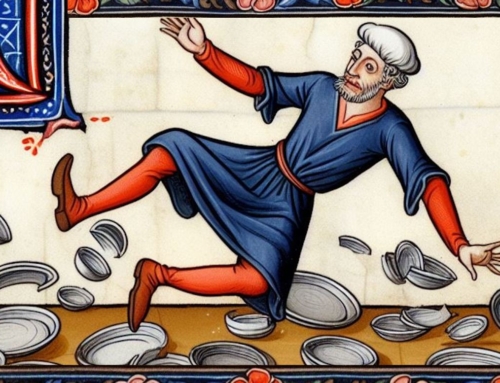We each have a past. It is a continuing story that accounts for where we have come and everything that has happened along the way—a personal history of our thoughts, words, and actions. Acknowledging the past is unnerving, but at some point we each must come to terms with this difficult comrade.
On the one hand, the past can be a friend, reminding us of happy times and fond memories. But on the other hand, it can be a foe. In fact, the past can become a tormentor through memories that we’d rather leave forgotten, such as regrettable mistakes or (even worse) embarrassing mishaps.
Perhaps we have tried to finagle with reality to make ourselves more comfortable with the past or even attempted to escape the blunt truth of the past through denial. Yet, in the end, we find ourselves living with the same fate: my past remains my past.
Though the past came and went, it still follows me like a shadow. The string of individual events that makes up my past revolves around one person—me. They bear witness to my imperfections, turning my past into my accuser. As long as I am at the center of this ongoing saga of my life, my story will remain far from perfect.
Even so, Jesus tells me that I must be perfect, as my heavenly Father is perfect. But look at this story that is unfolding around me. I can show that I have been a decent person—living the life of grace in the Church, helping those in need, not making too many (or too seriously) bad decisions. But I am a far cry from a perfect person. My past stands as a witness against me on that count, proclaiming that I am not a lofty saint but a lowly sinner.
God enters into my story. He calms the past with the bestowal of a new inheritance: himself. By giving me a purpose and transforming me by his grace, God gives new meaning to my past and reveals it as a story of his presence in my life. It is no longer just the account of an imperfect man striving for happiness. It is the story of a gentle God guiding me to himself.
Saint Augustine describes how God’s action in his life gave new meaning to his own past. “You were within me,” he writes, “but I was outside, and it was there that I searched for you . . . . You called, you shouted, and you broke through my deafness. You flashed, you shone, and you dispelled my blindness. You breathed your fragrance on me; I drew in breath and now I pant for you. I have tasted you, now I hunger and thirst for more. You touched me, and I burned for your peace” (Confessions X.27).
Just as he did with Saint Augustine, God breaks into our stories through his grace. He shows our past for what it is—the story of his saving actions in our lives, despite our mistakes and foibles—and calls us to himself, our true happiness.
God does not leave us to human striving or evaluate our worthiness by the past. He transforms us into saints. The past is merely the story of his love and mercy.
✠
Photo by Ben Sweet







